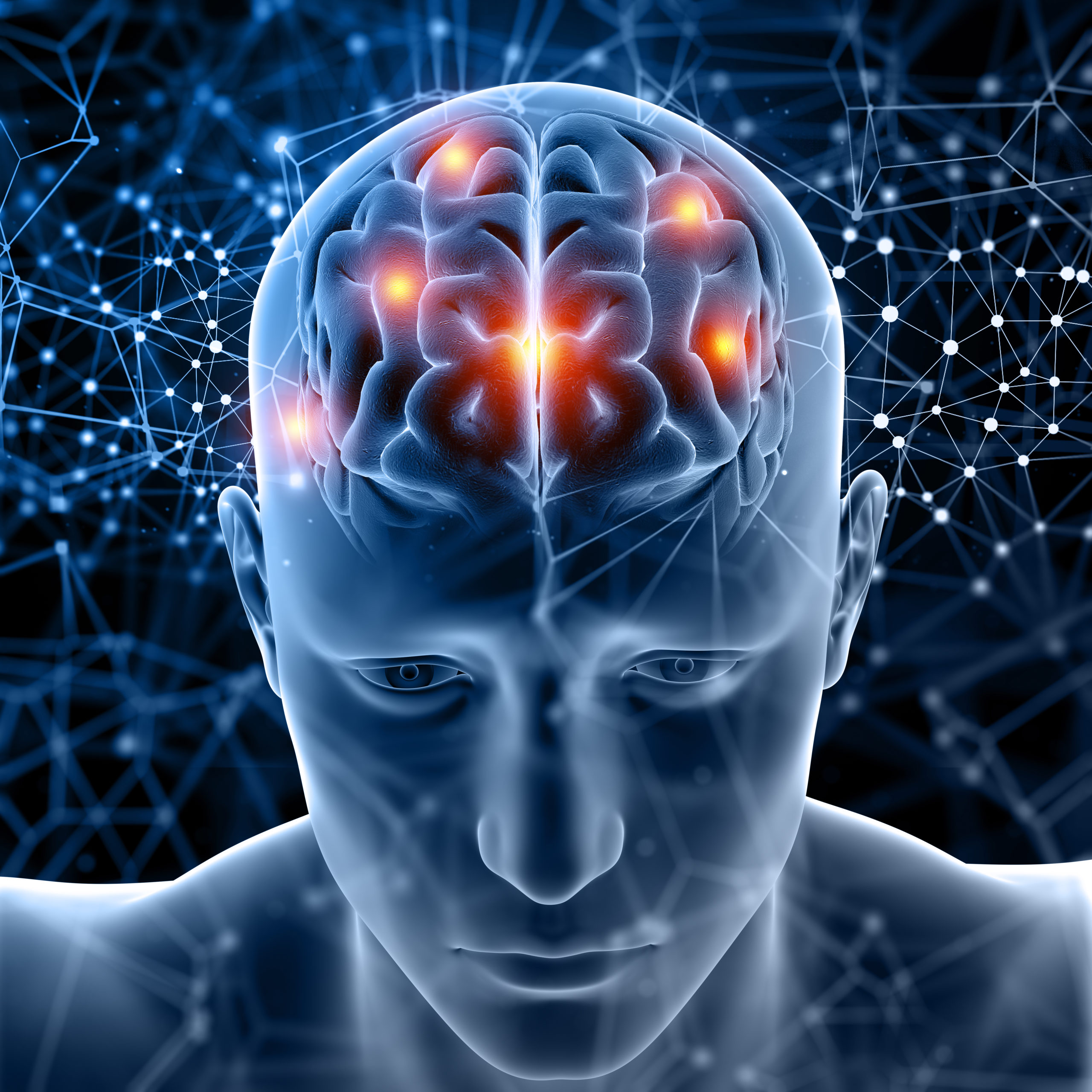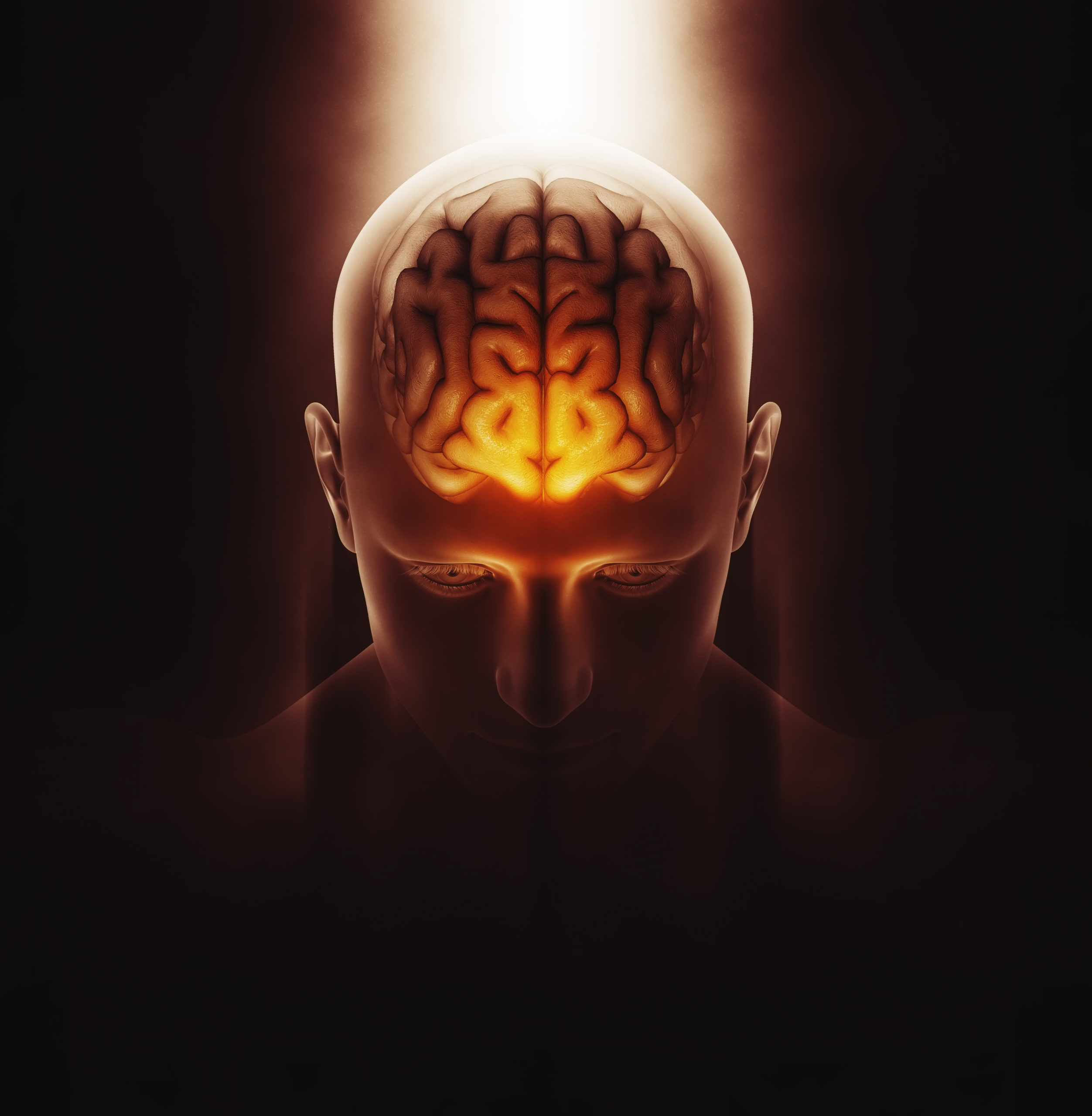


Table of Contents
CBD for seizures
Are you considering taking CBD to treat seizures? You have come to the right place. People have for many years been using cannabis to manage epilepsy and other health conditions. In fact, the FDA approved a CBD oil for seizures known as Epidiolex to treat severe forms of epilepsy in 2018. Here we look at everything you need to know about taking prescription CBD to treat seizures.
About Epilepsy – Overview
Seizures are a result of changes in the electrical activity in the brain. There are many different potential causes of seizures, including:
- Epilepsy
- Electrolyte imbalances
- Sleep deprivation
- Brain infections
- Drug overdose
- Brain injury
Reports from the Michigan Epilepsy Foundation show that 10 percent of Americans suffer from some form of epilepsy at some point in their lives – a form of chronic neurological disorder characterized by frequent but unprovoked seizures.
Epilepsy affects all areas of your daily life. It is characterized by violent tremors that can put you in great danger besides the fact that a person with epilepsy is likely to suffer from migraines, sleep issues, depression, and anxiety disorders.
About a third of all forms of epilepsy are treatment-resistant epilepsy or refractory epilepsy, meaning most of the patients will not react to anti epileptic Drugs (AEDs). Some patients with drug-resistant epilepsy suffer from severe side effects when taking AEDs, while the drugs are just ineffective for others.
Due to this, people turn to natural resources like CBD for seizure control. More specifically, CBD oil is thought to have antiepileptic effects and thus may have the potential to help with seizures and epilepsy.
Understanding CBD Oil
CBD oil is a cannabis extract with high CBD concentrations. Cannabidiol or CBD is a chemical in cannabis plants. It is a sister compound to THC, a chemical compound that causes the “high” feeling after taking marijuana. CBD oil is sourced from two sources: Hemp and marijuana.
Hemp-derived CBD oil is non-psychoactive – contains trace amounts of THC (usually below 0.3%) and thus won’t make you high. On the other hand, CBD oil from marijuana has higher amounts of THC. THC is psychoactive, meaning it gets users “high.”
CBD oil has gained increased popularity in the recent past, with reports that it has many health benefits to its users, including seizure control.
There are many ways to take CBD oil, including using products that have CBD oil as an ingredient. They can be chewable gels, pills, tinctures – placing CBD oil under the tongue, creams on your skin, vape cartridges you breathe in, foods like chocolate bars, etc.

Is CBD Addictive?
CBD does not contain intoxicating effects. As such, it does not appear to be addictive in itself. According to the World Health Organization 2017 Pre-Review Report on humans, CBD is not associated with abuse potential.
In another 2017 study, CBD did not affect its users’ blood pressure, heart rate, or cognitive function. The case was different for THC as it had significant physical and psychological effects, including euphoria and rapid heart rate.
In fact, CBD is not just non-addictive, but it may have the potential to treat drug addiction. Some studies suggest that CBD might help lower the chances of developing methamphetamine and cocaine use disorders. The catch is to check the source and the ingredients, and the amounts of CBD oil you take.
Is CBD Legal in All States
Thanks to the 2018 Farm Bill that legalized hemp-derived CBD in all states, the CBD market has grown exponentially. In fact, the value of the CBD market alone is expected to reach $22 billion by 2022. However, the 2018 Farm Bill did not just allow licensed CBD companies to distribute CBD oil products across state lines. It also gave states the power to create stricter laws regarding cannabis use in their states.
For instance, both hemp- and marijuana-derived CBD is legal under California’s recreational cannabis laws. That means you can sell or buy CBD from marijuana in California but can’t ship it across state lines as it is federally illegal.
So, Can CBD Oil Help with Seizures?
The earliest indications that medical cannabis could help manage convulsions came from animal research in the 1970s. The research aimed at analyzing the anticonvulsant properties of CBD and THC and found that both compounds had significant effects on mice.
Although it isn’t clear exactly how prescription CBD affects seizures, it is thought it may help protect brain cells against becoming ‘over excited’ or damaged. The seizure activity is partly regulated by the endocannabinoid system, the network of neurotransmitters (endocannabinoids), and cannabinoid receptors.
Understanding the Antiepileptic Properties of CBD
The role of the endocannabinoid system is to ensure that your body is in a state of equilibrium or controlling and maintaining the chemical and biological functioning of the body, including sensory perception, appetite, sleep, inflammation, and motor control.
It sends signals via cannabinoid receptors (chemical messengers) to different bodily systems to achieve this. The endocannabinoids bind to the cannabinoid receptors in the brain and body to help the endocannabinoid system keep a normal/healthy body functioning.
Once this has been achieved, the enzymes break down the endocannabinoids to avoid overaccumulation.
CBD’s chemical structure is almost similar to the endocannabinoids that your body produces. When you take CBD, it will affect cannabinoid receptors besides working on other different pathways.
While studies are still ongoing to determine how CBD oil works for seizures, the following observations may explain why CBD oil may provide positive results:
- CBD is an anti-inflammatory agent. Brain inflammation may trigger or increase the frequency of seizures. Prescription CBD may help curb neuroinflammation, reducing the frequency and severity of seizure attacks.
- Endocannabinoids are neuroprotectants; they lower the risk of seizures due to neurotoxicity. When you take CBD, you add more cannabinoids to your system, which may help improve the performance of the endocannabinoid system due to their neuroprotective properties.
- The endocannabinoid system affects neuroexcitation and may trigger seizures. Taking CBD oil will provide additional cannabinoids to the endocannabinoid system, which may prevent the overexcitation of neurons.
What Research Says About CBD for Seizures and Epilepsy
Earlier studies focused on the effects of THC/CBD solutions to treat epilepsy. However, since THC is psychoactive, current research is focused on CBD.
Epidiolex – A CBD Oil for Seizures
In 2018, the Food and Drug Administration (FDA) approved a CBD oil for seizures called Epidiolex to treat seizures caused by rare severe forms of epilepsy or drug-resistant seizures:
- Dravet Syndrome
- Lennox-Gastaut Syndrome
Dravet syndrome and Lennox-Gastaut syndrome start in early childhood, with the main signs being delayed development of the child’s motor skills, intellectual aptitude, language, and communication with others.
Epidiolex went through several clinical trials before receiving FDA approval to treat epilepsy. The medicine has been shown to reduce the frequency of seizures more than other anti-seizure drugs. Besides, medical cannabis may help improve other seizure symptoms like sleep and anxiety.
In one study on CBD for Lennox-Gastaut Syndrome, experts compared the effects of Epidiolex (20 milligrams per kilogram (mg/kg)) per day with placebo. They found that:
- 50 percent of people who took Epidiolex had 44 percent fewer seizures
- 50 percent of those who took placebo had 22 percent fewer seizures
Another clinical trial on the effects of CBD on Dravet syndrome involved participants between the ages 2 and 18. The trial compared the effect of 20mg/kg of Epidiolex with a placebo. Participants who took Epidiolex had a 39 percent decrease in seizures, while those who took a placebo experienced a 17 percent decrease.

CBD for Other Causes of Seizures
Although further research is needed to determine whether medical cannabis can help treat other kinds of seizures, early studies are promising. One such case is CBD for tuberous sclerosis complex, a genetic disorder that causes noncancerous tumors in various body parts. A clinical study found that people who took Epidiolex experienced significant improvement than those who took the placebo.
Some studies have also indicated that medical cannabis may enhance the effect of antiepileptic drugs like clobazam (Onfi). CBD may also help with epileptic syndromes, including:
- Doose syndrome
- Aicardi syndrome
- CDKL5 deficiency disorder
- Dup15q syndrome
- Drop seizures
CBD and Children
Clinical experts may prescribe CBD to children with seizure and epilepsy symptoms that don’t respond to anti-seizure medications. As earlier stated, the FDA has approved Epidiolex, a CBD oil for seizures, to treat Lennox-Gastaut and Dravet syndromes to children over the age of 2.
However, there’s no evidence that CBD products on the market are safe for children. Although Epidiolex has proven to help reduce seizures in children, some are likely to experience mild to severe side effects due to CBD use.
Risks and Side Effects of CBD
Despite the numerous benefits, CBD use may lead to potential risks and side effects. Common side effects to be aware of when using CBD oil for seizures include:
- Drowsiness
- Sleepiness or fatigue
- Changes in appetite
- Changes in weight
- Diarrhea
- An upset stomach
Other risks include:
Drug Interactions
There’s a chance that CBD may interact with some drugs. That’s why you must consult your doctor before using CBD, especially if you are taking other seizures medications. CBD has the potential to interact with some medicines, leading to potential risks and side effects.
The case is worse for people with liver or renal diseases as changes in their blood can be risky.
Some researches show that CBD may interact with some herbs, especially those that take the CYP450 pathway, including:
- Garlic
- Echinacea
- Goldenseal
- Milk thistle
- Ginkgo biloba
Some medications that can interact with CBD and make it less effective include:
- Stiripentol
- Valproic acid
- Clobazam
- Brivaracetam
- Eslicarbazepine
- Topiramate
- Zonisamide
May Lead to Liver Damage
Some people may be at risk of liver damage after using CBD, especially if they take it alongside other medications. Let your doctor monitor your liver function when taking prescription CBD if you have a history of liver damage.
Purity
The quality of CBD is a critical aspect to consider when looking for CBD oil. Purity is especially crucial when using CBD oil as a supplementary treatment for epilepsy and other such conditions.
The best way to achieve this is to choose CBD oil from reputable suppliers who provide third-party lab testing detailing the amounts of all ingredients in each bottle. That way, you will be sure that you are taking the right amount of the product.
Third-party lab results also help determine that the product is free from heavy metals, pesticides, chemicals, and other contaminants.
Drug Testing
Hemp-derived CBD products contain a federally low-THC content, meaning they may not appear on a drug test. However, contamination during the manufacturing process can make your CBD contain higher amounts of THC.
Also, some manufacturers may claim to eliminate THC from their products, but the case may be entirely different. If the product has not been subjected to third-party testing, the label may not be accurate. Besides, the products may be inaccurately labeled, thus giving the wrong THC dose.
There have also been cases of people receiving false-positive results for THC after using other drugs like:
- Pantoprazole
- Dronabinol
- Naproxen, ibuprofen, and other nonsteroidal anti-inflammatory drugs (NSAIDs)
Ideally, if you are using medical cannabis and have to undergo drug testing, you need to be aware of these possibilities.

How to Use CBD Oil for Seizures
As earlier stated, the FDA has only approved Epidiolex for the treatment of epilepsy. Epidiolex takes the form of an oral solution with 99 percent CBD. However, if you want, you can try other forms of CBD to see how they work for you, including:
Capsules
You can get CBD capsules as pills and softgels. Using them is simple: You just put them in the mouth and swallow them. CBD capsules are easy to dose and don’t come with any natural hemp taste.
Sublingual Drops
Sublingual drops are a common form of CBD. Using them is also straightforward: You need to use a dropper to administer CBD oil under the tongue, where it is absorbed into the bloodstream through special membranes. The best part is that they have the most consistent blood absorption rates.
Vape Oils
Vape oil is a form of CBD inhaled via a vape pen or vaporizer. Inhalation is more relaxing than other ways of consuming CBD, making it a preferred method for most people. Furthermore, vape CBD oils let more CBD into your system than other consumption methods.
Is There a Recommended CBD Oil Dosage for Seizures?
The correct CBD dosage for seizures will vary from patient to patient. If you are taking CBD for the first time, it is recommended to start low and increase gradually until you find your optimal dosage.
The best starting dose of Epidiolex is 2.5 mg/kg twice per day. You can increase the dose to 5 mg/kg twice per day after one week. Depending on how your body responds, you can increase the amount to 10 mg/kg or even 20 mg/kg twice per day.
Despite that, the optimal dosage of CBD oils will depend on various factors, including:
- Bodyweight
- CBD concentration
- Metabolism
- Route of administration
- Age
- Lifestyle choices
- Cannabinoid spectrum
- Other medications you are taking
What CBD Strains are Best for Seizures?
Although more research is needed, some studies suggest that CBD products rich in CBD are more effective in managing seizures than pure CBD. On the other hand, taking commercial CBD or products with higher levels of THC is likely to trigger seizure frequency.
When choosing CBD oils for seizures, you must give great preference to labeling. However, you must keep in mind that since the FDA doesn’t regulate most CBD products on the market, there’s a likelihood the amount of CBD and THC contained in the label isn’t what the product you buy contains.
The case is different for Epidiolex as high manufacturing standards are held and dosage is consistent.
The best way is to consult your doctor first before using CBD oils for seizures. Your doctor will tell you if the CBD oil can interact with other medication, the best way to take it, and the dosage.
CBD Oil for Seizures – Is It Effective?
Having that you have read to this point, it’s likely you’ve decided to try CBD oils for seizures. After all, CBD oils have many presumed health benefits, including helping with epileptic seizures. The best thing is that the FDA has approved Epidiolex (a CBD oil for seizures) to treat rare forms of epilepsy and tuberous sclerosis complex.
While this article contains much information on using CBD oil to manage your symptoms, AlchemyLeads is not giving any medical advice and it is important to talk to your physician to avoid experiencing negative effects, especially if you are taking other medications.
